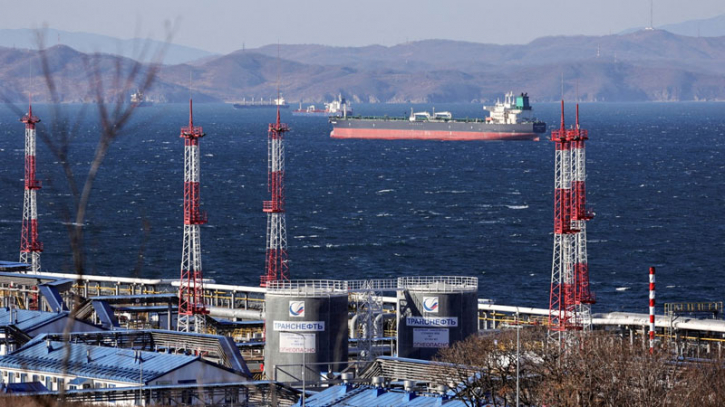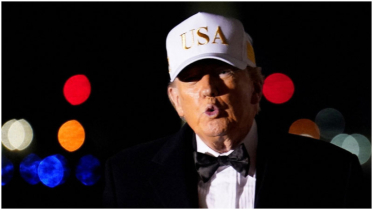Russian oil exports hit post-invasion high

Russian oil exports jumped in April to the highest level since Ukraine war began, boosting revenues by $1.7 billion despite Western sanctions, the International Energy Agency (IEA) said Tuesday.
The Paris-based organization said Russian exports increased by 50,000 bpd to 8.3 million bpd last month, estimating that the country still needs to deliver on a threat to cut production sharply.
"Indeed, Russia may be boosting volumes to make up for lost revenue," the IEA said in its monthly oil market report.
Moscow has earned 15 billion in April from it's oil export, up $1.7 billion from the previous month.
The figure, however, was 27 per cent lower than the same month in 2022. The agency added that Russia's tax receipts from its oil and gas by 64 per cent year-on-year sector were down.
The Group of Seven (G7) wealthy nations and Australia have set price caps on Russian petroleum products and crude in coordination with the European Union (EU) to cut a key funding source for its war on Ukraine.
The EU has also imposed embargoes on the country's key oil exports.
In response, Russia has threatened to cut off countries and companies that comply with the price cap.
It has also announced a production cut of 500,000bpd while its allies in the OPEC+ group of oil producers, including Saudi Arabia, also agreed to slash output.
The IEA said Russia's crude output held "broadly steady" in April at 9.6 million bdp and that the country must cut a further 300,000 bpd in May to bring itself into line.
"Russia seems to have few problems finding willing buyers for its crude and oil products, frequently at the expense of fellow OPEC+ members in the two-tier market that has emerged since the embargoes came into force," the IEA said.
The agency said China and India accounted for nearly 80 per cent of Russian crude export destinations.
China's emergence from nearly three years of COVID-19 restrictions is also expected to lift world oil demand this year as the IEA raised its forecast by 2.2 million bpd to an average of 102 million bpd.
This is 200,000 bpd above the previous forecast.
"China's demand recovery continues to surpass expectations, with the country setting a record in March" at 16 million bpd.
Meanwhile, the EU should crack down on India reselling Russian oil into Europe as refined fuel, including diesel, EU foreign policy chief Josep Borrell said in an interview with the Financial Times (FT) on Tuesday.
In the past year, access to cheap Russian crude has boosted output and profits at Indian refineries, enabling them to export refined products competitively to Europe and take a more significant market share.
Borrell told the newspaper he would raise the issue with India's foreign minister, Subrahmanyam Jaishankar when they meet on Tuesday.
"If diesel or gasoline is entering Europe ... coming from India and being produced with Russian oil, that is certainly a circumvention of sanctions and member states have to take measures," the EU's chief diplomat said.
"That India buys Russian oil, it's normal ... But if they use that to be a center where Russian oil is being refined and by-products are being sold to us... we have to act," Borrell said.
Indian refiners, which rarely bought Russian oil previously due to high transport costs, imported 970,000-981,000 bpd of it in fiscal 2022/23 (April-March), accounting for more than a fifth of the country's overall fuel imports.
Russia's largest oil producer Rosneft and top Indian refiner Indian Oil Corp have also signed a term deal to increase and diversify oil grades delivered to India substantially.
According to ship-tracking data from Kpler, Reliance Industries and Nayara Energy were the key exporters of refined fuels and buyers of Russian oil.
India typically exported an average of 154,000 barrels per day (bpd) of diesel and jet fuel to Europe before Russia invaded Ukraine. However, that has increased to 200,000 bpd after the EU banned Russian oil products imports from Feb. 5 this year, data from Kpler shows.
Borrell told the FT that the national authorities would need to implement any mechanism to stem the flow of Russian oil, suggesting that the EU could target buyers of Indian refined fuels, which it believes are derived from Russian crude.
"If they sell, it is because someone is buying. And we have to look at who is buying," he said.
.png)




